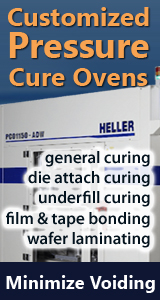Printed Circuit Board Assembly & PCB Design Forum
SMT electronics assembly manufacturing forum.
- SMTnet
- »
- Electronics Forum
- »
- reliability of epoxy
reliability of epoxy
![]()
![]() I am looking for advice or information from anyone about t...
- Aug 05, 1998
by
I am looking for advice or information from anyone about t...
- Aug 05, 1998
by
![]()
![]() | I am looking for advice or information from anyone about...
- Aug 06, 1998
by
| I am looking for advice or information from anyone about...
- Aug 06, 1998
by
![]()
![]() | | I am looking for advice or information from anyone abo...
- Aug 06, 1998
by
| | I am looking for advice or information from anyone abo...
- Aug 06, 1998
by
![]()
![]() | I am looking for advice or information from anyone about...
- Aug 06, 1998
by
| I am looking for advice or information from anyone about...
- Aug 06, 1998
by
![]()
![]() | | I am looking for advice or information from anyone abo...
- Aug 07, 1998
by
| | I am looking for advice or information from anyone abo...
- Aug 07, 1998
by
![]()
![]() | | | I am looking for advice or information from anyone a...
- Aug 07, 1998
by
| | | I am looking for advice or information from anyone a...
- Aug 07, 1998
by
![]()
![]() | | | I am looking for advice or information from anyone a...
- Aug 24, 1998
by
| | | I am looking for advice or information from anyone a...
- Aug 24, 1998
by
![]()
![]() | | | I am looking for advice or information from anyone...
- Aug 24, 1998
by
| | | I am looking for advice or information from anyone...
- Aug 24, 1998
by
- SMTnet
- »
- Electronics Forum
- »
- reliability of epoxy







